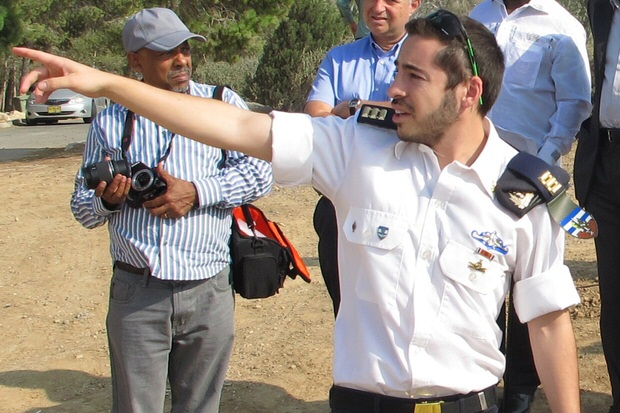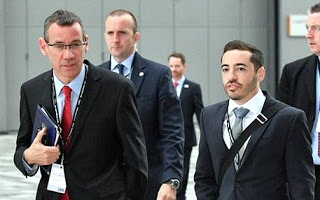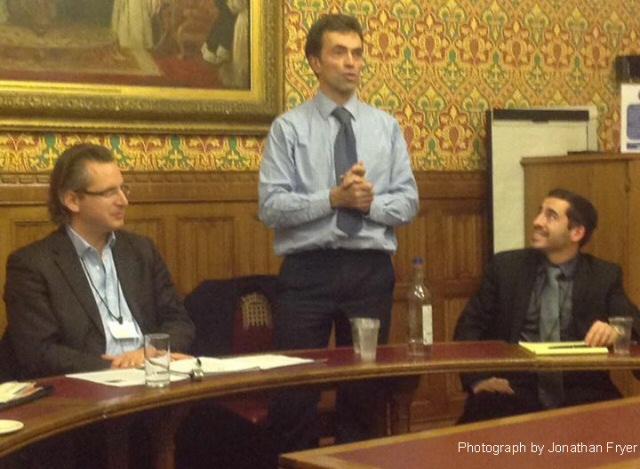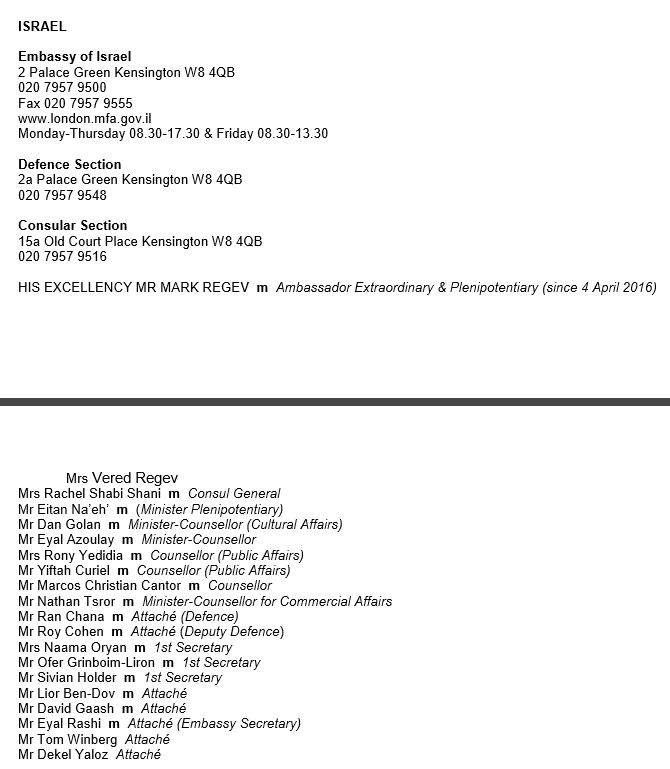Reprinted from Medium by permission
In light of the revelations made by the Al Jazeera investigative documentary The Lobby, Palestinian students in the UK have published a letter calling for an apology and the resignation of the National Union of Students VP Richard Brooks. In the footage Brooks implicates himself in helping to organise a group that is trying to oust Malia Bouattia for her strong stance on Palestine. The attacks being levelled against Bouattia are based on her politics and principled opposition to Israel’s regime of apartheid and settler colonialism. As an elected official of the NUS, Brooks is betraying the trust placed in him by students and has demonstrated seriously misplaced and misguided priorities, which lead him to collude with the Israeli Embassy.
Statement
Following the revelations made as part of the first episode of the Al Jazeera documentary, The Lobby, we as Palestinian students, many of whom are members of the student movement in the UK, are issuing this statement to express solidarity with NUS President Malia Bouattia and to demand an apology from NUS Vice President (Union Development) Richard Brooks, as well as his resignation. These revelations contain evidence that Brooks has been implicated in soliciting help from the Israeli Embassy to bring down the NUS President and to destabilise the Union as a whole. In a climate where student activists, NUS, and the NUS President in particular, have been undermined, attacked, and harassed for their pro-Palestine politics, such activities and communications are outrageous, must be condemned outright, and cannot go without severe consequences.
We believe that Brooks’ activities constitute a flagrant violation of the guidelines of the Boycott, Divestment, and Sanctions Campaign (BDS), which was endorsed and adopted by the NUS in 2014 as part of a democratic and transparent process amid widespread concern over the deteriorating situation in Palestine after Israel’s devastating attacks on Gaza that summer. The BDS Campaign calls for freedom, justice, and equality for Palestinians and the provision of their full human rights. Palestinian students in the UK are an important part of the national student movement, and it is due to this that both the Palestinian students and the wider student movement feel disturbed at what has been shown to transpire between Brooks and the Israeli Embassy.
As an elected full time official within the National Union of Students, Richard Brooks bears a great deal of responsibility towards the student movement, as well as to the Palestinian students who come under attack by public figures on an increasingly regular basis due to our nationality. It is unacceptable for a somebody in Brooks’ position to conspire with a foreign government to undermine and damage one of the largest democratic institutions in the country, which represents over 7 million students. This constitutes a massive betrayal of the trust placed within Richard Brooks by the students who elected him, in addition to demonstrating his misplaced and misguided priorities, none of which should include colluding with the Israeli Embassy, as is evidently the case. Furthermore, it is important to affirm that the attacks levelled at Bouattia since her electoral victory were based on her politics and principled opposition to Israel’s regime of apartheid and settler colonialism. As Palestinian students, we see these attacks as part of a broader attempt to dehumanise Palestinians and silence our narratives.
In light of these appalling and outrageous revelations, we the undersigned Palestinian students in the UK and supporters of the Palestinian cause feel that the position of NUS Vice President Richard Brooks has become untenable and unworkable. In light of this, we demand the following:
– An unequivocal public apology for the actions taken by Richard Brooks.
– Richard Brooks’ resignation from his position as Vice President (Union Development) of the National Union of Students with immediate effect.
Signatories
Malaka Mohammed, University of Exeter
Samar Ahmed, Kings College London
Yara Hawari, University of Exeter
Kareem Bseiso, SOAS, University of London
Yahya Abu Seido, University College London
Ayat Hamdan, University of Exeter
Shahd Abusalama, SOAS, University of London
Laura Al-Tahrawy, Lincoln University
Afnan Jabr Alqadri, St. Mary University
Sahar S, Kings College London
Omar Jouda, Oxford Brookes University
Abdulla Saad, SOAS, University of London
Eyad Hamid, SOAS, University of London
Motaz Ayyad, Imperial College
Razan Masri, SOAS, University of London
Gabriel Polly, University of Exeter
Rawand Safi, University College London
Razan Shamallakh, Kings College London
Yousef Anis, University College London
Hani Awwad, Oxford University
Beth Jamal, Cambridge University
Layla D., University of Nottingham
Emily M., Surrey University
Dana El Ghadban, University of Leeds
Mahmoud Zwahre, Coventry University
Miriam Abu Samra, Oxford University
Doa Althalathini, Plymouth University
Rama Sahtout, University of Exeter
Mostafa Afana, Belfast University
Haya Natsheh, London School of Economics
Ashraf Hamad, University of Leeds
Rama Sabanekh, SOAS, University of London
Basel Sourani, SOAS, University of London
Layla Al-Khatib, University College London
Hussam Al-Kurd, London School of Economics
Ramsey El-Dabbagh, University College London
Ala Sawalha, SOAS, University of London
Marwan Hanbali, Cardiff University
Jamal Abdulfattah, Exeter University
Mjriam Abu Samra, University of Oxford
Rawan Yaghi, Oxford University
Ibtehal H., Kings College London
Sari Sati, University of Kent
Abdulrahman Arasoghli, University of Manchester
Saba I., Kings College London
Syeda Tahmina Khatun, Brunel University London
Dena Qaddumi, Palestinian PhD student, University of Cambridge
Khalil al-Wazir at the University of East Anglia
Haya Naji, Southampton University
Dina Tahboub, University of Cambridge
Abdelrahman Murad, University of the Arts London
Alessia Cancemi, Goldsmiths University of London
Tamer EL-Nakhal , Medicine, Cambridge University Hospital
Hamss Hassan Dawood, University College London
Salim Habash, Loughborough University
Huda Ammori, University of Manchester
Laila al-Khatib, University College London
Samir al-Khatib, University College London
Zeena Jojo, London School of Economics
Ahmed A., University of Leeds
Haneen Shubib, University of Leeds
Hana Elias, University of Exeter
If you wish to add your name, please email Malaka933@gmail.com







